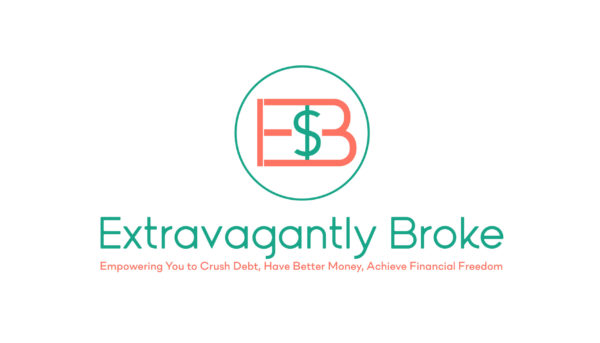Mental health and Wellness go hand in hand. But when your finances are in crisis, then your mental health will suffer. Especially when it comes to relationships. The stress over debt, bills, or a loss of income, can lead to panic, arguments, and the feeling of having no control.
And often it’s difficult to know which way to turn.
But fortunately for you, I’ve found the help you need!
In part seven of my Empowering Women Series, I had a revealing chat with mental health expert Dr. LaToya Gilmore. She has counseled hundreds of couples over the years. And here, she provides a plethora of eye-opening insight to guide you. So don’t miss a minute!
Related Post – Part One: The Best How To Budget Advice From A Self-Made Millionaire.
Related Post – Part Two: How To Overcome A Crisis And Still Achieve Financial Independence.
Related Post – Part Three: How To Conquer Money Challenges and Improve Your Finances Now.
Related Post – Part Four: How This Mom Slayed $1 Million Of Debt In Under 3 Years.
Related Post – Part Five: How To Master Self-Care And Money During Stressful Times.
Related Post – Part Six: How To Navigate Money, Retirement, And Entrepreneurship, The Smart Way!
Related Post – Part Seven: How To Strengthen Your Marriage, Money, And Mental Health.
Related Post – Part Eight: How To Achieve Better Nutrition, Health, And Finances
You can watch the full information-packed video here. (Text has been mildly edited for clarity and readability.)
Table of Contents
Can you tell us all a little about your background?
All right, so I’m Doctor Latoya Gilmore. And I am a therapist as well as an educator. My background consists of a BA in Psychology, Masters in marriage and family therapy, and a doctorate in counselor education.
And a long time ago, I discovered that I wanted to be able to serve people in a capacity that helps them seek holistic wellness. So counseling and therapy have been the Avenue in which I’ve been blessed to serve others.
DeShena: Holistic Wellness, I definitely agree that it is a Cornerstone for overall well-being. I became a certified life coach because my focus is on money and helping people get out of debt. But I try to take it from a holistic approach because money issues bleed into so many different areas of your life.
Have you had any personal money struggles?

Yes, definitely! So, if I think back to the origin of it, I would say my struggle began in undergrad. That’s when I obtained my first credit card.
Credit card companies [would go] to college campuses and get students to sign up for credit cards under the age of 21. That was before the 2009 legislation took place with President Obama.
And so there were credit card companies all over our campus with the t-shirts and the water bottles. And I passed by the table and saw the free t-shirt. I said I don’t have a job. [The representative responded,] ‘That’s okay! How much is your tuition?’
So that’s the amount that I was encouraged to write down on the application. I didn’t know any better. Because we didn’t have those credit card conversations in my family growing up.
So I was a lamb amongst wolves just ready to get slaughtered.
They saw me coming from a mile away!
And so, from there, it was a lesson. I’ve had conversations with my dad after that. And he assisted me with getting out of some of those traps that I found myself in.
But after undergrad, I moved and attended graduate school. And so that brought in a different exposure to debt as well.
Because not only did I go to a private institution, but it was in California. And there’s out-of-state fees and all of those things because I’m a native Texan.
So, I had to get loans for the first time. Private schools are expensive! And so I needed loans to live, for housing, food, and all of those things. I worked on campus, but it wasn’t enough to pay for living expenses.
And so, I accrued educational debt.
So, it’s been a journey. And it continues to be a journey of focus.
I remember that my first professional job as a family therapist was in [Compton] California.
And I picked up this habit of retail therapy.
Are you familiar with retail therapy?
DeShena: YES! (Haha) Too familiar, for sure!
Latoya: And so, if I had a very stressful and taxing day, I would find myself in retail stores! And I’d get a thing or two, and you know, it made me feel good — temporarily!
But that became an unhealthy habit and an unhealthy way of coping for myself. You know, being new within the field, I kind of used that as my ‘self-care’ coping mechanism.
Instead of me knowing enough to tap into the fact that I’m really stressed right now. [#1] And asking myself:
- What are some other things I can do to de-stress?
- [To realize] that I’m feeling overwhelmed, and what do I need to do in order to help those feelings subside?
- How can I do more things that I enjoy?
Then, sometimes [#2] I would go to the beach and just have some time watching the waves crashing. Those kinds of things really feed me. You know, like [#3] prayer and [#4] meditation, those things as well.
But that retail therapy habit that I developed…wasn’t beneficial for me, financially.
Have you been able to modify that [retail therapy] habit?

It rears its head every once in a while. But yes, definitely, it’s been modified.
Because I’m in a place now where I am able to [#5] recognize, okay, you’ve been triggered. So what do you need in this moment? That [new] dress isn’t going to give you what you need!
So, how about you really seek what it is that you need. [#6] And [I’ve learned] to be:
- More mindful
- More conscious
- More aware
- More gracious with myself
And now I can say [to myself], okay, something else is going on here. Do you need to schedule your appointment to talk to your therapist? Like, what’s going on, Toya?
So, yeah, [#7] a lot of self-talk. And talking to yourself doesn’t make you crazy!
DeShena: I agree! I have to hear it. I have to get it out. And you know, it makes it better. Because when you hear it, something about that allows you to deal with it. Versus keeping it inside.
So therapists have therapists?
They better!
[#8] I would advise you that if your clinician or your therapist does not have a therapist — that’s something to question.
Because we’re all on this journey of healing. None of us have 100% arrived anywhere!
And so, I would want to go to someone that’s doing their own work — continuously. Yeah, that’s really important!
DeShena: Good to know. You know, I heard recently that everybody should be in therapy. I hadn’t really thought of that. But, when you think about it, we all have issues that we’re working through. So, being able to talk to someone that might be able to guide you couldn’t be a bad thing!

Why is mental health so important?
Mental health is vital! It’s about holistic healing and Wellness.
It’s not just about the physical parts of us. But our thoughts, what we believe, and what we think all determine the choices that we make.
There’s a scripture that says:
‘As a man thinketh, so is he.’
And as a person thinks, so are they, right?
And so that’s actually one of the therapeutic Frameworks that I utilize within my private practice. It’s called cognitive behavioral therapy. Because I understand the importance of thoughts.
If you can change someone’s mind and their mindset, then guess what’s going to follow? Their behavior. Their actions. Their choices. The things that they do and how they live.
And so, therapy is an opportunity to have whatever those mindsets are examined. Let’s take a look at the origin of them.
- Where did that narrative even come from in the first place?
- Do you believe that because you observed it from your mom or your dad?
- Did you learn it from someone else close to you that was influential to you?
- Were you taught to live a certain way or say certain things?
As kids, we are sponges. And we spoke up EVERYTHING!
BUT, we’re not necessarily able to decipher, okay, this is healthy, and this is not as healthy as that.
WE JUST SOAK IT ALL IN! And then, [we] give it back [into the world].
And so much, if not everything, that we experience shapes who we become in the future. And, who we are in the Here and Now.
So, what therapy does is it gives you an opportunity to examine ALL of those things. And to really think about:
- What are your core values?
- What are your goals?
- What are some of the things that have been hindrances?
- Why has it taken you so long?
- What is the fear about?
- What is the anxiety about?
- Is there some depression there?
Let’s take a look at why they’ve been stumbling blocks for you. And get you to a place of understanding where those thoughts come from.
And, once you have that understanding and that awareness, then you can begin to make choices to change your situation. And you can have the outcomes that you actually desire.
So mental health is a part of Health.
And if your mind isn’t in a space of Health, then it can have negative impacts. Not only on your mental health and emotional stability, but also impact you physically.
How can money stress negatively impact your mental health?

Money stress can impact you the same way that being stressed out or anxious in general can.
The constant worry, about what you have, or what you don’t have. About not being able to pay this, or not having enough money to do XYZ. Those are things that can bring about frustration, anger, depression, sadness.
You’re in grief and loss because you’re not able to go out and participate with family and friends. Or do things that other people within your circle are doing.
So, it can bring on that stress. It can cause contention within your relationship. And bring extra negative energy into your environment.
And when it comes to stress and how it impacts our bodies:
- Have you ever had a tension headache before?
- Have you ever been so anxious or nervous about something that your stomach is in knots?
- Have you had digestive issues, or you can’t keep any food down?
Those are all examples of psychosomatic symptoms.
And psyche or psycho doesn’t mean ‘crazy,’ it just means mind. It means your thoughts and your cognition. And somo, that means body.
So psychosomatic symptoms are those symptoms that start in your mind. They start by you being stressed out or worried about something and it’s keeping you up all night.
[For instance,] you’re experiencing insomnia because you’re stressed out about the bills that are due. Or the impending bills that are coming.
And so you’re experiencing things that start off with your thoughts. And then, it manifests itself in your body through headaches, tightness of your shoulders, or pain in your back.
But however it manifests itself, it starts up top first. So, stress can definitely negatively impact our emotional and mental health. And it can bleed over into your physical body as well.
DeShena: Oh my goodness, I can testify to that! Because before I became debt-free, I would actually have physiological symptoms. I would feel my heart beating. The knots in my stomach. And my hands would tremble. And it happened to me every single time I was sitting to pay bills. And I knew this wasn’t right. So, that’s part of what spurred on my mindset shift to realize that I’ve got to make some changes. Like you said, it all starts in the mind.
When you counsel couples, how often does money play a factor?

It’s there along with other things. [#9] But mostly [the problem] is communication.
And so, in couples therapy, it might be that one partner wants to save. Or one partner wants to concentrate on eliminating debt. And the other person isn’t necessarily on that same page.
So that brings contention within their dynamics, and it can cause a lot of issues. And studies have shown that ultimately it can lead to the dissolution of the marriage.
Because they’re just not able to come together, walk on the same path, have the same goal, and the same outcomes. And it just doesn’t work out!
So the relationship comes to an end. But mostly, it’s that lack of communication. And not being in alignment with one another when it comes to money. For instance,
- How much are we going to spend?
- How much should we save?
- Do we need an emergency fund?
So, it’s about that communication. [#10] And finding whatever the common ground or middle medium is for that couple.
[Then, understanding that] if you’re on the same team, then [#11] let’s create some team goals and…
Strive towards those goals so that you’re walking, deciding, and making decisions in unity.
Versus, one person is [spending money]. And the other person doesn’t know [how much was spent] until the statement comes in a month later.
And so NOW, that’s an argument!
When it could have been a conversation, beforehand.
It didn’t have to turn into an argument if that effective communication was in place.
DeShena: I love that! It was an argument that could have been a conversation. I coached a couple and they were having that same barrier to communication as well. The husband felt he didn’t know how to solve the money problem, so his fall back was just avoidance.
And the wife felt like they were two people in a canoe rowing in opposite directions. So they were basically just going around in circles. So communication is definitely very important. And I like that you say to realize that you’re on the same team and you’re working as teammates towards the same goal.
How can couples improve their mental health when money is tight?

Well, when money is tight, [#12] it doesn’t cost to choose to be in a better state of emotional and mental health.
Yes, therapy does cost. But, even with therapy, [#13] there are discounted or sometimes free resources that can be utilized to assist with that.
But one thing that I noticed from this pandemic circumstance is that people have gotten really, really creative, right? With what they do and how they spend time together.
People are going outside and walking with their families. People are seeing neighbors that they didn’t even know lived in the neighborhood, right?
You’re like, wow, I didn’t realize there were so many children in our community! Or whatever the case may be.
But just going back to the basics. And when you’re stressed, doing the things that can help alleviate that stress.
[#14] So that’s spending time with people that you love and not the people that drain you.
[#15] Know what your limits are. Because I know for a lot of parents, it’s been really stressful with homeschooling for the first time. They’re like ‘look, my degree is not in education!’
They’re trying to teach 5th graders, middle schoolers, and high schoolers. And to make sure that they log in for their Zoom classes. That’s high stress! Not to mention the Zoom meetings that they have to attend for their jobs.
And so when it comes to reducing stress, spend that quality time together. You know, like those game nights. People have been dusting off board games and all and all kinds of things during this pandemic, right?
And [#16] going outside, being active in nature, [#17]cooking together, all of those things are free, right! It doesn’t cost anything.
[#18] Have a Netflix night. If you already subscribe to that, then you’re already paying for the service. So identifying those quality time moments.
But also before you even get to that [#19] being really introspective in the way of recognizing when you are stressed. And so:
- If you’re more irritable
- If you’re a little short.
- If your patience isn’t there.
Then that’s an indication that something is going on with you. And you might need to check in with yourself.
Like, do you need that 30 or 45 minutes of alone time? Do you need to go on that walk by yourself — this time? The kids can always go later. But do you need your time now?
[#20] And in regards to money, being able to figure out what the plan of action is going to be.
And whatever that plan of action is, [#21] stick to it!
Then, [#22] go from not only planning but to the implementation stage, so there’s some movement. Don’t just continue to talk about it.
Talk, without effort, is just going to bring more frustration.
Because you’re not doing anything different to help decrease the amount of that debt.
And when your patience is a little low, [#23] be able to check yourself. And then, [#24] be open if somebody else checks you, in a respectful way.
But if they notice that ‘hey, are you okay?’ Or, ask what’s going on? Then pay attention. But try not to get defensive.
DeShena: I’m guilty of a lot of that. Like seeing the people in the neighborhood that I didn’t even know. And, with dusting off the Uno cards. I haven’t played Uno in years!

What are some of the psychological consequences of unemployment or job loss?
When it comes to a drastic change like that, it brings up loss. And there’s a grief that is associated with loss.
[So you’re thinking] that what I was accustomed to is no longer the case. And, it’s beyond your control.
And so, when things are beyond our control, sometimes that brings on that sense of powerlessness, right? And powerlessness sometimes can be accompanied by hopelessness.
So now you’re getting into sadness and depression.
There’s a lot that can be triggered by a sudden job loss, [including] isolation. Even if you are still working, but you’re limited to being at home, and you’d rather be in the office.
Or you’d rather be out because you’re more extroverted in nature. And people interaction energizes you. There’s a loss there too because now you have to be in a position where you’re creating a new normal.
And so psychologically, it can, and it has impacted us in so many different ways, myself included.
Because now, I have to think about things in a way that I had not had to ever think about in my entire lifetime.
My trips to HEB do not look the same as they did in February.
So that does something mentally to you, right?
You have to be more hypersensitive about what you touch. Do you have your mask on? Has this basket been cleaned before I put my hands on it?
Like there’s all of these different extra thoughts that you never had to deal with before. And so, there’s all of those losses that people are experiencing at various degrees.
Whether it’s an actual loss of employment and the stress that goes along with that because:
- You want to be able to feed your family.
- You want to be able to keep the lights and the gas on.
- You want to be able to put fuel in your vehicle.
Not that people are really going anywhere. But, there’s just so many different things to think about.
Plus, you have the added stressor of no longer having that source of income that you’ve depended on.
Yeah, talk about anxiety, talk about insomnia, talk about sadness. And talk about anger related to the fact that — okay, now I have to figure it out.
Because now I’ve been put in a position beyond my control.
DeShena: Right! And when you say loss or grief, I don’t know that people think of it as grief. Or that you’re actually going through a grieving process. You know, of course, there’s the anger and the frustration. But grief, I think that word really sticks out to me. It’s interesting because you have lost something. You’ve lost a big part of your identity or at least [the security of] how are you going to take care of your family.
What are some good ways to cope with grief from job loss?

Grief can manifest itself in all kinds of ways. And that’s one of the reasons why I use that word to describe the loss of employment.
Because grief does come along with that as well. Even if it wasn’t necessarily taken away from you because of the pandemic.
It can happen even with some simple transitions that people make. For instance:
A new wife or a new husband might go through a moment of grief.
Not that they’re not excited about the new life and the new Journey.
But it’s about saying goodbye to something else that they’ve known. And that they’ve become comfortable with.
And so [#25] it is a process of acknowledging where you are emotionally. [#26] And allowing yourself to be sad.
You can also:
- [#27] Find someone to talk to.
- [#28] Write [your feelings] down.
- [#29] Record it on your phone.
And just talk out your thoughts. Because what that does, is it releases, right?
And so the opposite of release is to suppress it.
And that’s what I would advise not to do. You have to let it out! Because — IT WILL COME OUT!
If you release it, then you’re in control of it. OR…
You may find yourself in a situation where you seem calm. And then something can happen and all of a sudden — you’re triggered.
And then it explodes out of you!
I look at suppressing feelings like having a soda bottle in your hand and, you shake, shake, shake, shake.
Then, when you pop that top, what happens?
It explodes everywhere, right?
So how can you be creative in the situation? If it’s a circumstance that is out of your control, then think:
- Okay, what can I control?
- How can I focus on that?
- How can I make strides to progress forward?
- What do I need to do?
It’s going to require my effort, and it’s going to take work, yes! But,
If you can shift that focus from things outside of your control to what you actually can create and control — that’s a different type of life experience.
It’s something that you can feel empowered by. And you can be creative in striving towards a resolution of whatever that situation is at that time.
DeShena: I love that! Shifting your focus. It goes right back to being all about the mindset. Because there are always things that are out of our control. So acknowledging that first, and then being more creative to start figuring out what I can control. That is looking at it from a whole different perspective. And that can be very empowering.
What can couples with money stress do to preserve their relationship?

I’ll definitely repeat communication. You can’t imagine how much that is the source of all of the things, for the most part, that brings people to couples therapy.
The foundation of it is that there’s a misunderstanding. And so how the message is sent isn’t necessarily how the intender meant to send it.
And then it’s received in a certain way. And people are constantly just missing one another in communication.
I find with the couples that I work with, when they start talking, they really have the same goals — they just say it differently.
And, I often share with them that you guys are basically like two different cultures that have come and joined together.
And when I say culture, I just mean family of origin. I’m not necessarily talking about ethnicity because they can be of the same ethnic background.
But culturally:
- How they were raised.
- The things that they learned.
- The things that were imparted in their lives.
And the values and all of those things will look very different from one partner to the other partner.
And so what they [each] have to decide is, okay what did I like and what did I appreciate growing up from my culture? [#30] How can we blend the two together to create this new cultural dynamic moving forward?
And so there has to be an increased understanding of the other person. BUT:
Sometimes we’re just so stuck, and we’re so limited in our perspective.
Because it has to be OUR way.
And it’s hard for us to hear anyone else’s way. Because that’s the way that we known for our entire lives.
And so there’s a shift that has to happen when you decide to join in partnership with someone else. And to live life together with someone else.
It’s not just your perspective! It’s both of those perspectives.
So, if one spouse is willing and open to learning, and the other spouse is willing to reciprocate — that’s a beautiful Dynamic to have.
But if you have one spouse that says, ‘okay, THIS is the right way!’
Then that ‘right way,’ — that gets a lot of couples in trouble!
Because it’s so limiting in nature. That says that there’s only one way, and there’s NO flexibility there.
Whenever something is too rigid, it’s guaranteed to break at some point.
Because it has no stretch. It’s hard to adapt it. And it’s hard to change.
If I just have tunnel vision, all I see is what is in my line of sight at that particular time.
I’m not able to see peripheral. I’m not able to do a 360-degree turn so that I can see it full circle.
I’m only able to see what’s right in front of me. And that’s really limiting.
And when people get stuck in their perspectives, it’s hard to have that effective communication. Because they’re not open to it.
DeShena: Yes, that is so key. And the same thing happened with a couple I was coaching. I did tell them there’s no one right way. Just like you said, they have to have some flexibility. You know, everybody has to give a little.
Can you provide some free and low-cost resources for people who are stressed about jobs, money, and relationships?

So, in addition to those free things that I mentioned [earlier], if someone is interested in starting therapy, [#31] start with the employee assistance program (EAP).
A lot of organizations right now are encouraging their employees to get counseling during this time. Because they understand how stressful it is for all of us.
And so, if you contact your HR department to see if there’s an EAP available, those are free sessions.
And I’ve seen clients get anywhere from 6 to 20 free counseling sessions.
Now, if you have a copay [#32] then, contact your insurance provider. On the back of [your ID] card, there may be a toll-free number for Behavioral Health.
Contact that number, [#33] see what providers are in that insurance network, and find someone from there.
I’ve seen copays be as low as $0 and at the highest about $30 per session.
If you’re paying out of pocket because you don’t have insurance, then there’s an [#34] organization or website called Openpathcollective.org.
And what they do is offer a directory of therapists that offer low cost, sliding scale therapy sessions. And so [the rate] would just vary from clinician to clinician.
But some sessions, depending on the therapist, could be anywhere from maybe $20 up to maybe $60 per session.
And there’s all kinds of directories. [#35] Also, www.psychologytoday.com is a resource. You would just type in your ZIP code to see who the clinicians are within your local area.
You’re able to read their profile and kind of get a sense of who they are. Because [#36] it’s really important to make sure that you are connected with a therapist, that is a good fit for you.
You want to make sure that when you read the profile, you feel some kind of connection, or that the person would be understanding and would be able to listen to you.
And so all of those things matter. Your preference matters. And Psychology today, they have all of the therapist profiles on display so that you’re able to read those and contact the therapist if you need to.
[#37] Melanin and mental health is another resource that has therapists of color. The website is melaninandmentalhealth.com.
And if you’re not sure if you’re ready to start [therapy] just yet, then maybe you can [#38] start just by following some therapist on social media.
Just to kind of get an idea about what some of the topics might be of discussion. And you may find that you may connect with someone via there that you would like to work with one on one.
A lot of people are in a place where they are exploring. And they really want to be in a place of wellness.
And they know that for them, a part of their Wellness Journey includes therapy.
So there’s a plethora of resources available again from free to low discounted. It’s out there. So, if you seek it, you’re going to find it.
DeShena: That’s amazing! And the sliding scale seems like that can work with anybody’s budget. So, good tips there, thank you!
What services do you offer?
I’m a therapist in private practice. And so, individual and couples therapy. As well as educational resources. I’m not taking new clients right now. But, I also have some e-courses and things that are currently out there on my website www.lovesupportguidance.com. As well as some new things that will be released in the upcoming future.
Where are all the places that people can find you?
The website again is www.lovesupportguidance.com. Also on Instagram @Dr.GilmoreShares. And those are the two places where I can be located.
Thank you so much, LaToya, for sharing your wisdom, advice, and expertise!!

Dr. LaToya S. Gilmore is a therapist, educator, consultant, writer, and owner of LSG Counseling Services, PLLC.
Her private practice offers counseling, coaching, and educational services. She focuses on the importance of doing emotional work and how the exploration of our childhood experiences can lead to change in the present. She is an advocate for ending the stigma related to seeking therapy within communities of color and believes in empowering others to process situations and feelings in healthier, growth-promoting ways which result in holistic healing.







I really enjoy reading this interview. Mental health and marriage can be very badly affected when money are running low. Is proven that money are the number one reason for arguments in marriages.
It’s tough mentally coming to terms that u need a mental health break too when you’re stressed about your job or money too! It’s true that I find being able to talk to my colleagues at work helps me to have an outlet to de-stress some of the overwhelming feelings I have in a given moment at times.
Needful content. Keep creating content like this! Tons of love for you
Very insightful interview… would love to see more like this.
Thank you! Be sure to check out my Empowering women series, they are all full of advice from experts and first-hand experiences!
This interview was amazing. One of my major goals is to finally seek therapy. Just more motivation to do so! Thank you!
Oh, that’s wonderful, Denay! So glad you found it helpful and I hope there are some useful resources here for you as you pursue therapy!
Such an empowering resource for women. It’s so true these 3 factors are heavily influenced by one another!
I totally agree with you both that a holistic approach is best when comes to dealing with any “issues”. As everything blends together and overlaps. Especially with money, the impact and effects are so far reaching into our everyday well being!
I’ve learned so much about mental health and the importance of it because of this interview! We always have to be aware of what we consume, whether it’s for our body or for our brain. Thank you so much for this insightful article!
Wow. That was quite an article. So much to learn here
Thank you, I’m glad you liked it!